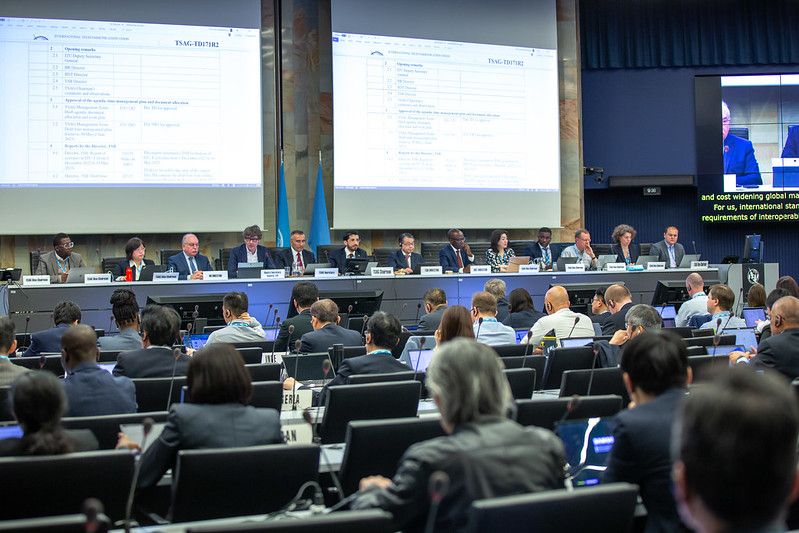
Standards for trustworthy technologies and a green, inclusive future for all
By Tomas Lamanauskas, Deputy Secretary-General, ITU
Let us start with the obvious: Never before have standards and standardization received so much attention.
G7 leaders recently called for the development and adoption of technical standards to keep artificial intelligence (AI), and especially rapidly evolving, quick learning generative AI platforms, “trustworthy.”
The intensified global attention all makes sense. Right from the start, standards – including those developed and issued by the International Telecommunication Union (ITU) – have helped make technologies safer, more accessible, and more interoperable. Just think of what international standards have done for mobile communications.
Collaborative, inclusive standardization has had a major impact on innovation, growth, and costs. It has widened global market access in the process.
ITU, as an international standards-making body for digital technologies, has always recognized requirements like interoperability, accessibility, and security as essential for new technologies.
Increasingly, however, we need to go beyond the purely technical. We need to start seeing our standardization work through the lenses of different expectations that the world places on us.
Green, gender-responsive, rights-based standards
International standards will be key for humanity to rise to the challenge of the climate crisis. Standards developed through ITU show the way to reduce e-waste, boost energy efficiency, and curb greenhouse gas emissions from the information and communication technology (ICT) sector in line with the Paris Agreement.
Put simply, our green standards are helping digital industry to do its bit in helping the planet.
Could we go further, applying a green lens to every aspect of the standards development process? In fact, we aspire to do this in partnership with other prominent standards-making bodies, such as the International Organization for Standardization (ISO) and the International Electrotechnical Commission (IEC), – which are among ITU’s partners in the Green Digital Action track for the upcoming United Nations (UN) climate conference, COP28.
Gender-responsive standards form an important element to make sure technology development includes all perspectives and responds to the needs of all.
Finally, an overarching human rights dimension is something that we cannot afford to shy away from.
The UN Human Rights Office (OHCHR) will soon release its report on human rights and technical standard-setting processes for new and emerging digital technologies, which will likely set out the main expectations in this area for ITU and other forward-looking standards organizations.
Working together for a green and inclusive future
The road to the future we want – the one envisaged in the sustainable development agenda – is critically off-track. Our collective responsibility is to help rescue it.
ITU seeks to mobilize innovative global partnerships to expand connectivity, leverage the power of digital, and reinvigorate progress towards the UN Sustainable Development Goals.
The ITU-led Partner2Connect initiative has mobilized over USD 30 billion worth of pledges to expand meaningful connectivity worldwide, with a target to reach USD 100 billion worth by 2026.
The AI for Good Global Summit on 6-7 July is set to bring governments, industry leaders, tech visionaries and innovators together with about 40 UN partners to focus on how AI, machine learning and robotics can help put the SDGs back on track for people, the planet, and prosperity.
We also aim to highlight the role of digital technologies through our SDG Digital Day on 17 September – just before the SDG Summit in New York.
Standards are key element in all those efforts.
In our increasingly complex and interconnected world, building bridges between different areas of expertise – across government, industry, academia, civil society – is becoming more important by the day.
I am proud that ITU is the place for all those stakeholders. We need to enable all of them to participate effectively in our work, and we must keep searching for new and pragmatic ways to become more inclusive.
Everyone deserves a voice in determining how modern technologies should factor into our shared future, underpinned by ITU’s strategic goals of universal connectivity and sustainable digital transformation. We, as standards-makers, look forward to working with all stakeholders to make sure international standardization meets the demands that the world places on us.
Based on remarks by Tomas Lamanauskas to ITU’s Telecommunication Standardization Advisory Group on 30 May.
Header image photo: D.Woldu/ITU
